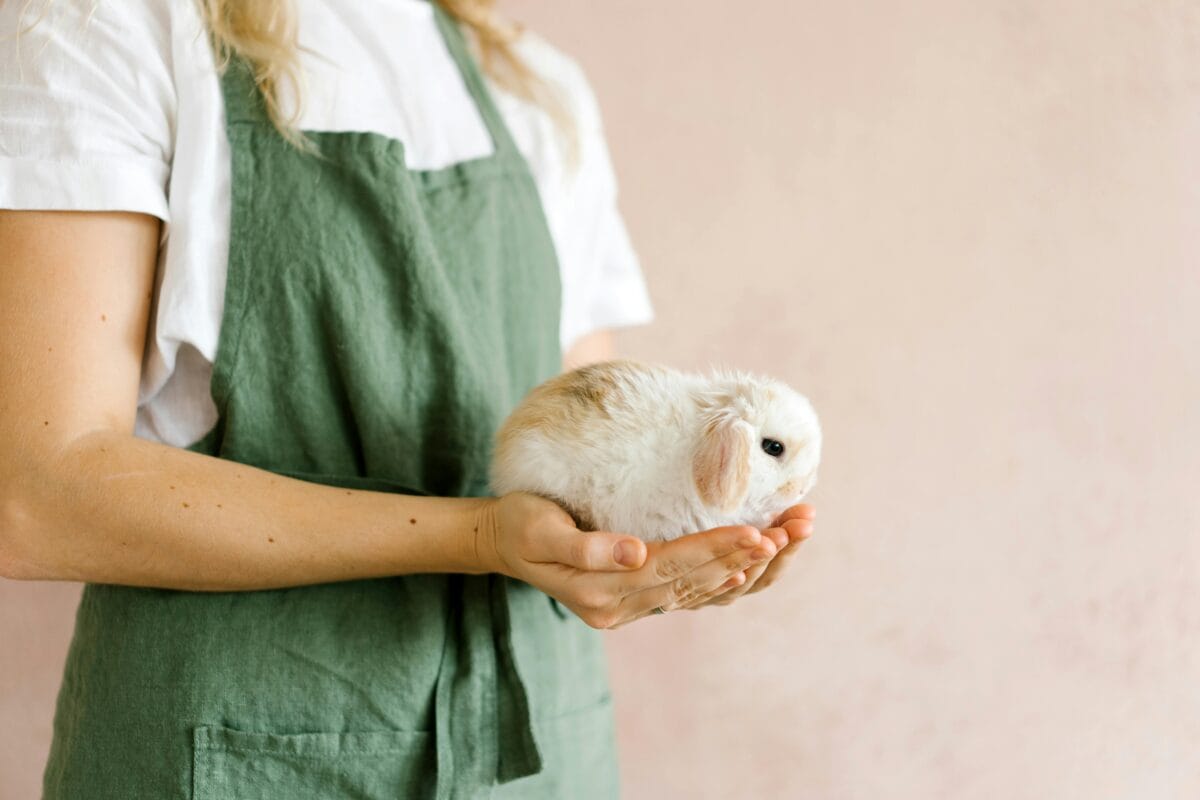Guides
Signs of Stress in Rabbits: How to Calm an Anxious Bunny
Signs of stress in rabbits can be easy to miss because bunnies are prey animals. They are experts at hiding how they feel. Even a happy rabbit can become anxious, and learning to notice the quiet signals helps you bring calm back quickly.
You know your bunny best. Every twitch of the nose, gentle flop after dinner, and soft follow across the room tells a story. Here is how to recognise when that story turns into stress and how to comfort your furry friend.
1. Thumping means something feels wrong
That sudden stomp of the back legs is your rabbit’s alarm signal. It is not attitude but instinct. Loud sounds, strange smells, or new pets can all cause fear. If thumping becomes frequent, it means your bunny feels unsafe. Soften their space by lowering noise, dimming lights, and using a gentle voice.
2. Hiding more than usual
Every rabbit enjoys a quiet hideout, but hiding all day often means anxiety. Changes at home such as visitors, moving furniture, or bringing in new animals can unsettle them. Offer several safe places such as tunnels, covered beds, and cosy corners where your rabbit can retreat. Hiding is healthy in moderation, but constant hiding calls for patience and reassurance.
3. Skipping meals or ignoring hay
A relaxed rabbit eats and chews hay throughout the day. When stress hits, appetite fades. This is one of the most important signs of stress in rabbits. If your bunny refuses food, act quickly. Stress can disrupt digestion and lead to gut stasis within hours. If your rabbit has not eaten for 12 hours, contact a rabbit-savvy vet immediately.
4. The frozen stare
Ears upright, eyes wide, and body tense show your bunny is in freeze mode. They feel unsafe to move. It is not shyness; it is a survival instinct. Sit quietly nearby and let them approach on their own terms. Trust grows from calm presence rather than pressure.
5. Over grooming or fur pulling
Some rabbits cope with anxiety by licking or plucking fur. It is similar to humans fidgeting when nervous. Offer distraction through foraging toys, hay mats, or chew toys. Keeping their mind busy reduces anxiety and prevents furniture damage.
6. Changes in toilet habits
Soft stools, smaller poos, or accidents outside the litter tray can appear when a rabbit feels uneasy. Keep the litter area consistent and scent free. Routine helps your bunny feel secure even when the surroundings change.
7. Sudden grumpiness
A rabbit that suddenly growls, lunges, or nips might not be aggressive but anxious. Fear often turns into defensive behaviour. Give them space, speak softly, and avoid sudden movements. Your calm energy helps them feel safe again.
Creating a calm bunny routine
Rabbits thrive on predictability. Feed, play, and rest at regular times every day. Provide natural light, good airflow, and hideouts to retreat to when needed. Use soft sounds, gentle voices, and toys to keep them mentally engaged.
If anxiety continues or your bunny stops eating, visit a rabbit-savvy vet. A quick check-up can rule out dental pain or health issues that may be causing stress.
For professional rabbit care advice, you can also visit the RSPCA Rabbit Care Guide, which is a trusted source for pet wellbeing in Australia.
The takeaway
A relaxed rabbit is a healthy rabbit. Every ear flick, little stretch, and happy flop shows trust and love. When you learn to recognise the signs of stress in rabbits, you can respond with empathy and care before problems grow.
At WeLoveMochi, we believe calm begins with care. Explore our Bunny Comfort Collection to find safe chews, toys, and hideouts designed for Aussie bunnies.
Because every hop, every stretch, every nap in the sunshine deserves to feel safe.
